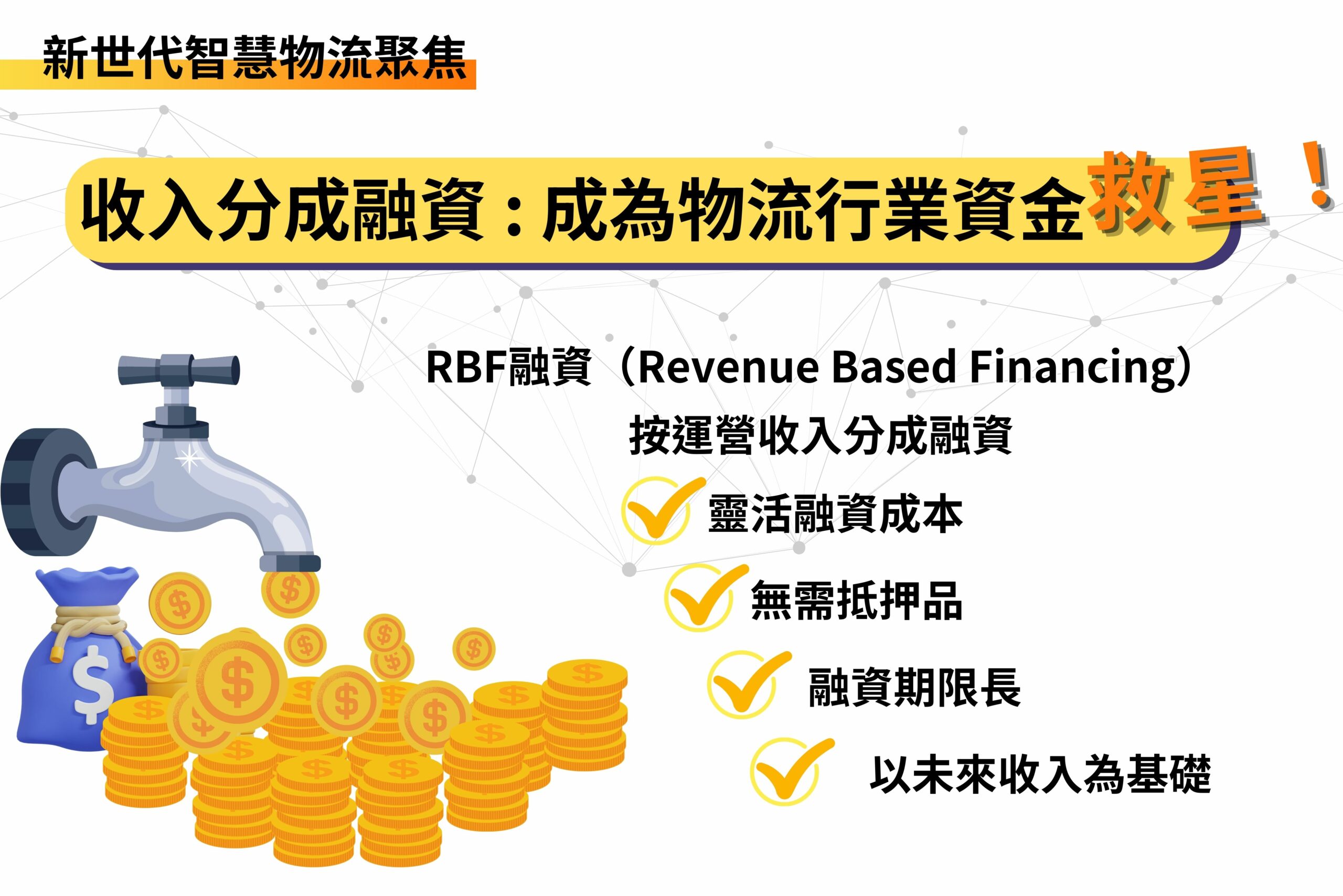Revenue-Based Financing: A Financial Lifeline for the Logistics Industry
- September 5, 2024

The logistics industry is currently grappling with significant challenges, including business expansion, technology upgrades, and supply chain management. As companies strive to upgrade to smart logistics level, there is an urgent need for substantial financial support. One solution gaining traction is Revenue-Based Financing (RBF), which offers a flexible approach to cash flow management.
RBF is an emerging financing model particularly suited for businesses with steady revenue and strong demand. Under this model, investors receive a percentage of a company’s total revenue in exchange for their investment, with repayments tied directly to the company’s performance. As sales increase, so do the payments made to investors.
Key features of RBF include:
- No Collateral or Equity Required: Financing is based on future revenue, allowing companies to repay a portion of their income on a regular basis.
- Flexible Financing Costs: The cost of financing adjusts according to the company’s revenue and growth, making it more adaptable compared to traditional loans.
- Focus on Revenue Generation: RBF emphasizes income and profitability potential, making it accessible for startups or businesses with unstable cash flow.
- Longer Financing Terms: Typically, RBF agreements can extend over 2 to 5 years, supporting long-term business growth.
RBF is particularly applicable in various scenarios:
Startups and SMEs: These businesses often lack collateral and may struggle to secure bank loans, making RBF an attractive alternative.
E-commerce and SaaS Companies: With stable revenue streams, these firms are well-positioned to benefit from RBF.
Equipment Manufacturing: Manufacturers can use RBF to obtain essential funding for growth.
Healthcare Industry: Given the lengthy research and development cycles, RBF provides the flexibility needed for financing.
Logistics Sector: RBF offers logistics companies a low-barrier financing option that enhances their competitiveness and growth potential.
In the RBF model, companies enter agreements with investors who provide unsecured loans. In return, these companies make periodic payments based on a predetermined revenue-sharing percentage, which fluctuates with their income. Unlike traditional debt or equity financing, RBF does not charge interest on the principal but instead collects a fixed fee as growth capital.
By mastering cash flow management, RBF is revitalizing logistics companies. If these firms can effectively leverage innovative financing tools and optimize their cash flow, they will be better positioned in a competitive market. Strong cash flow management is essential for the ongoing development of logistics businesses and achieving long-term competitive advantages, making it a critical focus for the industry’s future growth.
Other News
- All Post
- CSR

Reitar is honored to announce its dual achievement at the 2024-2025 Digital Accessibility Awards, receiving both the Gold Award and Elderly-Friendly Award for outstanding contributions to inclusive technology.

At Reitar, the philosophy of “Creating Shared Value” extends beyond business—it shapes our ESG approach, turning principles into tangible societal impact. Since April 2024, we have partnered with the New Life Psychiatric Rehabilitation Association in their “ECF Food Sharing Project” by placing a mobile food collection box in our office.

The World Wide Fund for Nature Hong Kong (WWF) has organized Earth Hour 2025, the world's largest environmental movement which took place on Saturday, March 22, at 8:30 PM, aiming to raise awareness about climate change and promote sustainable living. In support of this initiative, Reitar took proactive actions by switching off the office lights for an hour a day...

Reitar's environmental efforts have been recognized with two Excellence Level certifications under the Hong Kong Green Organisation Certification (HKGOC) program: the Waste Reduction Certificate and the Energy Saving Certificate. This achievement grants us the "Hong Kong Green Organization" title, becoming one of the environmentally friendly enterprises.
